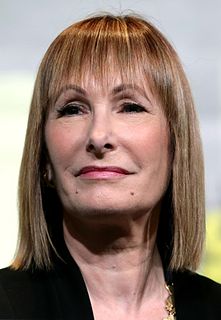A Quote by Robert Green Ingersoll
It cannot be said too often that actions are good or bad in the light of consequences, and that a clear perception of consequences would control actions. That which increases the sum of human happiness is moral; and that which diminishes the sum of human happiness is immoral. . . . Blind, unreasoning obedience is the enemy of morality.
Related Quotes
For the utilitarian, there is a fact of the matter about the good (the general happiness, or whatever conception of the good the utilitarian adopts) and about which actions or moral rules would contribute to maximizing the good. For the rational intuitionist, there are truths about which actions should be done and not done.
Blind obedience is itself an abuse of human morality. It is a misuse of the human soul in the name of religious commitment. It is a sin against individual conscience. It makes moral children of the adults from whom moral agency is required. It makes a vow, which is meant to require religious figures to listen always to the law of God, beholden first to the laws of very human organizations in the person of very human authorities. It is a law that isn't even working in the military and can never substitute for personal morality.
The flow of action continually produces consequences which are unintended by actors, and these unintended consequences also may form unacknowledged conditions of actions in a feedback fashion. Human history is created by intentional activities but is not an intended project; it persistently eludes efforts to bring it under conscious direction.
I'm trying to understand how do we tell lies to ourselves to justify what we've done and what are the consequences of those lies? But actually maybe I also recognize that in turning empathy into a practice for many years, by turning, by forcing myself to separate at some level the humanity of a human being from his or her actions and recognizing that sometimes, even the moral aspects of a human being can contribute to immoral behavior.
[The church] is in its major part an opponent still of progress and improvement in all the ways that diminish suffering in the world, because it has chosen to label as morality a certain narrow set of rules of conduct which have nothing to do with human happiness; and when you say that this or that ought to be done because it would make for human happiness, they think that has nothing to do with the matter at all. "What has human happiness to do with morals? The object of morals is not to make people happy.
We now know that we cannot continue to put ever-increasing amounts of CO2 into the atmosphere. Actions have consequences. In fact, the consequences of past actions are already in the pipeline. Global temperatures are rising. Glaciers are melting. Sea levels are rising. Extreme weather events are multiplying.
And here one must not that hatred is acquired just as much by means of good actions as by bad ones; and so, as I said above, if a prince wishes to maintain the state, he is often obliged not to be good; because whenever that group which you believe you need to support you is corrupted, whether it be the common people, the soldiers, or the nobles, it is to your advantage to follow their inclinations in order to satisfy them; and then good actions are your enemy.



































